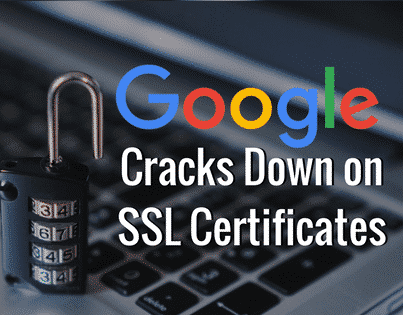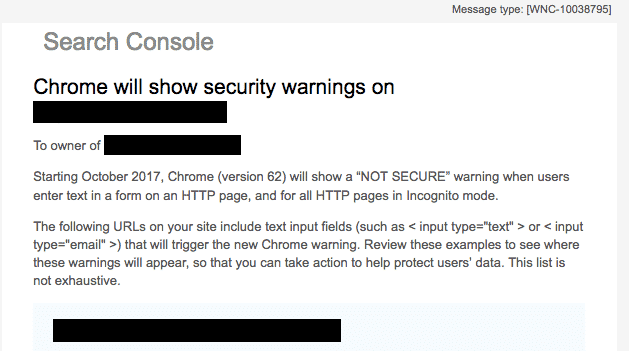“Not Secure”
If anything leaves a sour taste in a customer’s mouth, it’s those two words. Requesting personal information online is a sensitive endeavor, to begin with, but paired with uncertainty, it becomes an impossible one
Let us give you a piece of advice: lookup. Right now. Look at the address bar. Besides the arrows and refresh button, you should see a lock with the word “Secure” on it. It’s a simple green addition that makes a world of difference.
Long gone are the days of “HTTP”. It’s time for “HTTPS” to reign. A single “s” signifies security for your customers as well as your business.
Secure websites and URLs beginning with “HTTPS” have SSL certificates behind them. SSL certificates secure your website’s connection and, as of the beginning of this year, boost its ranking in Google.

If your website is not secure, don’t panic, but don’t ignore it either. Google is cracking down on unsecured sites, and this month they will be adding even more incentives to grab an SSL certificate. As Google begins to mark websites as “NOT SECURE”, it can lead to a reduction in customer confidence, as it signifies that the information they are trying to access may not be safe. The consequences of this can be troubling, reducing your web traffic and online lead generation.
In this blog, we are going to dig into what SSL certificates are, why they are vital to your website, and point you towards the highest performing certificates.

So, how can companies and users be sure that their most sensitive information is secure? The answer is through SSL certificates. Without SSL, hackers can steal personal information including, credit card details, usernames, and passwords.
SSL, or Secure Sockets Layer, establishes an encrypted link between your web server and your visitor’s web browser. This ensures that all data passed between the two remains private and secure. To do this, SSL certificates create a cryptographic key that binds the domain name and the organization’s identity in a long, encrypted code that hackers cannot break.
HOW DO SSL CERTIFICATES WORK?
To be honest, there’s no secret ingredient to the security, just a lot of tech talk that can be a little hard to follow, so let’s break it down.
Say you’re a small business owner that wants customers and users to feel safe using your website. Recognizing the importance of web security, you’ll give us a call.
Our team will explain the different SSL certificates and suggest the best one for your business. We’ll verify you, your website, and the validity of your business. Once verified, we will provide the SSL certificate and install it onto your web server.
The final piece of the security puzzle is the SSL handshake. The handshake occurs when the server connects with your customer’s browser. The handshake verifies that the SSL certificate is valid so the customer can feel secure knowing their information is safe.
Vectra certificates provide fast SSL handshakes minimizing the risk of losing customers to slow web performance.
And that’s it!
Simple, right?
Unfortunately, many businesses are unaware that SSL certificates are now a best practice, regardless of whether or not you have an online store

Why you need an SSL certificate NOW
Google is a big believer in SSL certificates. After all, their main focus is keeping you, the consumer, safe.
Google takes security very seriously so their laser-focus on “HTTP” websites shouldn’t come as a surprise. Google has been admonishing unsecured websites since January when Chrome began marking HTTP sites with password or credit card fields as “NOT SECURE” in the address bar. As a result, Google noted a 23% reduction in the fraction of navigations to HTTP pages with password or credit card forms on desktop.
This month Google will extend its secure reach to include websites with any forms where users are asked to share information. That includes email addresses, phone numbers, and names.
Google’s pattern is pretty clear. Eventually, all websites will need to be marked Secure in order to rank.
There are no downsides to SSL certificates. They keep your business and the user safe, build trust with current and prospective customers, improve Google rankings, and increase conversions.
If you don’t already have an SSL certificate, the good news is they’re pretty painless to obtain! If you’d like to get your hands on one, give us a call! Our team has been providing SSL certificates to local and national companies for an annual fee of $150. That’s a mere $12.50 a month. Not a bad price for complete web security!